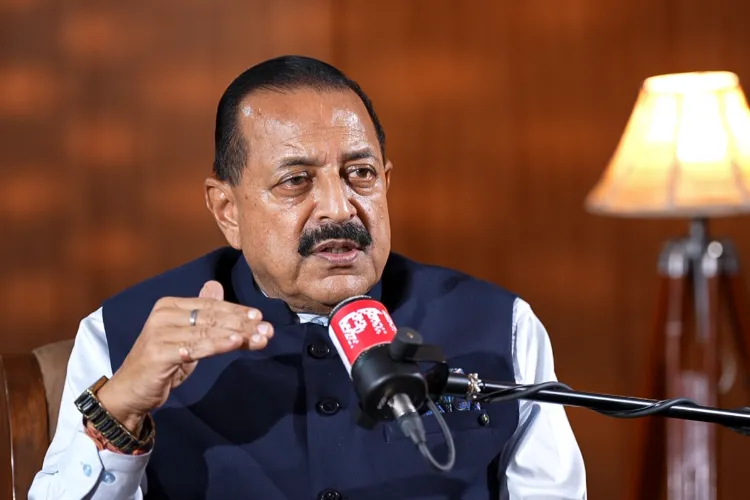
New Delhi
Ahead of the sixth anniversary of the abrogation of Article 370, which removed the special status granted to Jammu and Kashmir, Union Minister Jitendra Singh said peace was no longer bought through appeasement in the region.
In an exclusive video interview with PTI, Singh said since the removal of Article 370 from Jammu and Kashmir, there has been greater integration of the people of the region with the rest of the country.
"What is not often discussed is that there is a lot of mental union happening. For example, a citizen from Jammu and Kashmir looked at himself as someone different because he had been conditioned like that in his grooming. Now there is a sense of belonging," said Singh, a three-term Lok Sabha member from Udhampur and Minister of State in the Prime Minister's Office.
He said several laws that were not applicable to Jammu and Kashmir because of Article 370, have been implemented over the last six years.
On August 5, 2019, the Centre abrogated Article 370, which accorded a special status to the erstwhile state of Jammu and Kashmir. The government also divided Jammu and Kashmir into two union territories -- Jammu and Kashmir, and Ladakh.
Singh said previous governments used to indulge in talks with Pakistan and try to woo them and would also reach out to the separatists and finally end up nowhere.
"I think Prime Minister Modi's government made a huge departure from this. The result is that even the erstwhile separatists have fallen in line. Now, we are in a position where peace is no longer bought through appeasement. It is no longer a peace bought at the conditions of the others," he said.
"It is a peace by the preference of the government in India or the people of India," Singh said.
In August 2019, the Union government scrapped the special status accorded to Jammu and Kashmir under Article 370 of the Constitution and carved two union territories from the state.
Singh said the daughters of Jammu and Kashmir were discriminated against as they did not have rights to property of their parents if they married outside the state.
"This is no longer the case now," he said, adding that the abrogation of Article 370 made sure that laws applicable in the rest of the country were effective in Jammu and Kashmir as well.
He said refugees from Pakistan too were deprived of citizenship despite the same section of population giving India two prime ministers and one deputy prime minister -- Inder Kumar Gujral and Manmohan Singh, and L V Advani, respectively.
"This is a huge, huge unravelling happening, not only vis-a-vis the Constitution, democracy, but also by the norms of human dignity. So, all that stands corrected," Singh said.
The minister said even among common citizens of Jammu and Kashmir, there is a sense of belonging with the rest of the country.
"That is the reason you see most of the youth from Jammu and Kashmir are doing very well for themselves across the sectors, across the country," Singh said.
He said terrorism had disrupted development in Jammu and Kashmir.
READ MORE: 10 extraordinary men and women of Bihar who changed society
"Many of the projects, particularly in Kashmir valley, got stalled because of the conditions that were there. For the first time, rail arrived in J&K way back in 1972. But then we have to wait for more than five decades. Again, Prime Minister Modi came in, took a firm resolve to take the train to Kashmir valley," Singh said.
